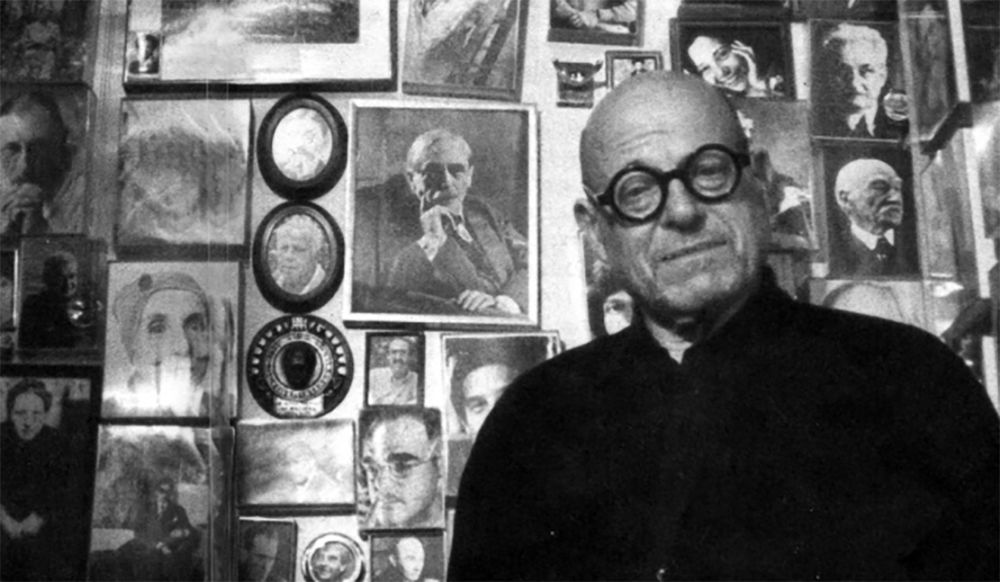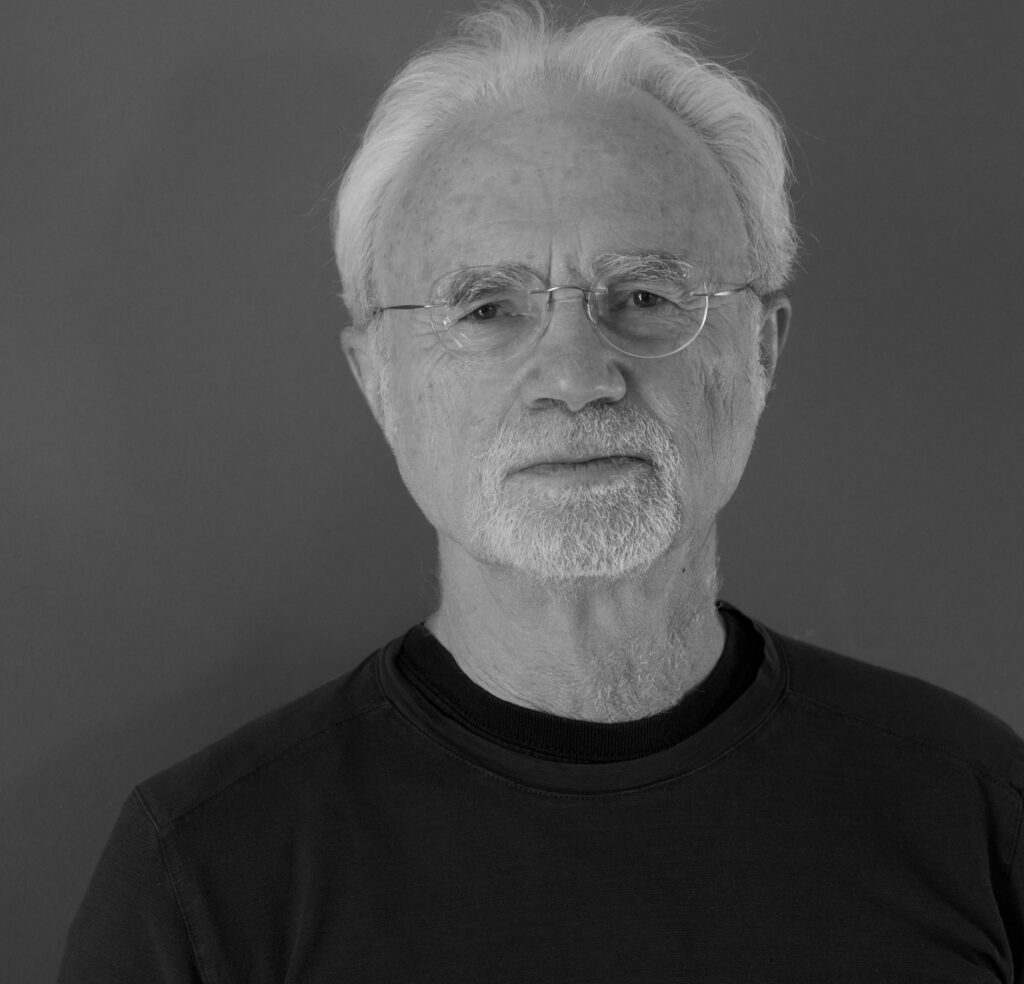Issue 169, Spring 2004

Visiting Richard Howard in his Greenwich Village apartment, I brought with me a photograph I’d discovered of the two of us, taken not long after we’d met, thirty years ago. What’s startling is to look up from the picture to the man in front of me and see how little he has changed. Time has done its usual thickening and thinning, but frugally. The same gleam is in the eyes, the same taut energy in the figure, and on his face the same look of intense concentration he brings to his work today.
Over the years, that work has piled up elegantly. Howard’s first collection, gathering poems written over the previous fifteen years, was Quantities, which appeared in 1962. It was followed by The Damages (1967) and Untitled Subjects (1969), which was awarded the Pulitzer Prize. That same year, his critical study, Alone with America: Essays on the Art of Poetry in the United States Since 1950, was also published, and his position as a major figure in the world of poetry was solidified. New books followed regularly: Findings (1971), Two-Part Inventions (1974), Fellow Feelings (1976), Misgivings (1979), Lining Up (1984), No Traveller(1989), Like Most Revelations (1994), Trappings (1999), and Talking Cures (2002). In a 1974 anthology, Preferences, he juxtaposed poems by contemporary masters with their favorite poems of the past, and his commentary is beguiling. He has over the years been our preeminent translator from the French, and among the many books he has brought over into English—from Gide to General de Gaulle, from Cocteau to Camus—none has been more impressive than his version of the complete Les Fleurs du mal of Baudelaire (1982), for which he received the American Book Award in translation. Next fall, to celebrate his seventy-fifth birthday, Farrar, Straus, and Giroux will be publishing his Selected Poems, along with a new collection of his essays, called Paper Trail. Last but not least, it should be noted that he has served as poetry editor of this magazine since 1994.
Except for his student days uptown at Columbia, Howard has always lived in the Village, preferring its smaller scale. He walks his dog—a six-year-old French bulldog named Gide—four times a day around Washington Square. For some years now he has been back teaching at his alma mater, as a Professor of Practice in the writing division of Columbia’s School of the Arts. Every term, he offers two courses. One is a large lecture, each year on a different topic. In the recent past, he has taken up "Difficult Love," "Powers of Childhood," and "Powers of Irrationality" (nicknamed by students "Cuckoo, Gaga, and Nuts"), huge subjects that are emblems of his enormous erudition. This semester, for two hours every Tuesday, he is addressing himself to "Primitivism," a subject he explores beginning with Mallarmé’s faun, on through Brecht, Brancusi, Freud, Gauguin, Stravinsky, and Isadora Duncan, on down to Lord of the Flies. The second course—one other teachers make a workshop—is a seminar on contemporary American poetry, from Ransom to Ammons. He refuses to consider student work in the classroom and instead has his writing students visit him at his apartment for half-hour tutorials as soon as they have accumulated three or four new poems for his inspection.
Howard lives in a veritable Aladdin’s cave. It is a small (maybe thirty-five feet by twenty) one-room apartment, subdivided into what he calls “uterine chambers”—foyer, dining area, sleeping quarters, and work space. On one side is an arrangement of comfortable couches and chairs, and a cocktail table in front dominated by a grand faux-Tiffany lamp. Across from the table is the large L of Howard’s desk, on one flange his computer, on the other his black Selectric. He was a reluctant convert to the computer, but now uses his typewriter only to address envelopes. He has files crammed with the correspondence of a lifetime, though letters from writers are usually tucked into copies of their books.
Books! They are everywhere. Floor to high ceiling, shelves and recesses, books behind books. Thousands of them—and thousands more in his Columbia office. Nearest to his desk is any writer’s treasury—his reference books. Copies of his own books are there too, though the books he has translated—over two hundred by now—are on high shelves over the entrance to his bathroom. To the front of many shelves are attached pictures, most by friends, others given to him by admirers. Over one shelf, for instance, is a drawing by Dorothea Tanning, flanked by sketches by Jean Cocteau and John Button. Two etchings are prominent—Manet’s rendering of Baudelaire and Baskin’s of Pound. Everywhere are images. To accommodate more, there’s even a small postcard rack, stuffed with favorites. Stacks of CDs and art books, the literature of several languages, even several of his parents’ old elegant sets—of Kipling and Conrad and Hazlitt—the evidence of a life spent accumulating culture, less for its own sake than to enlarge his capacities for understanding experience.
On the way in or out of his apartment, the visitor will note Howard’s bed in a nook (on it is a large stuffed gorilla named Mildred) and a kitchenette that doesn’t seem much used but sports his collection of pig pictures. In the foyer, by the front door, hang several of his medals and decorations; by far the snazziest are two bestowed by the French government, one naming him a Chevalier de l’Ordre des Arts et Lettres, and the other making him an Officier of the Légion d’Honneur. But surely even more remarkable is his tiny bathroom. On every surface of this room—the walls, the ceiling, the back of the door, even inside the shower—are photographs, well over a hundred of them, of his friends and literary heroes in small frames or plastic display boxes. In one line down the back of the door, for instance, are staring at you as you sit there the faces of Thomas Mann, Willa Cather, Sergei Diaghilev, André Malraux, Susan Sontag, and Benjamin Britten. Odder still are the accidental juxtapositions—Valéry next to Frost, Peter Taylor by Emily Dickinson, Harold Bloom adjacent to Mark Twain.
When we spoke, Howard and his companion of twenty-five years, David Alexander, were just back from days in London and Paris; in a couple of months, they are off to Naples. His appetite for museums and architecture, for ruins and cathedrals, seems insatiable, and is a part of his general restlessness—an almost driven curiosity about human beings and their imagination. For this interview, he took a seat at his desk and fixed on me from behind his signature glasses with their thick, round frames.
INTERVIEWER
This apartment certainly brings to mind that old term man of letters. Does it mean anything anymore, or has it gone the way of the steam locomotive and finger bowls?
RICHARD HOWARD
I suspect you are right: man of letters is a largely—or slightly—decorative term. For most people, the phrase looms through a cloud of pejorative associations having to do with mealy-mouthed filler to be encountered in the columns of such persons as Sir Edmund Gosse and the late J. Donald Adams of The New York Times, whom one of my professors at Columbia, Fred Dupee, used to call J. Donald Duck. After all, to be referred to as “literary” these days, in almost every connection, is a term of opprobrium, one I encounter frequently, and although I have considerable regard for Sir Edmund, for Andrew Lang, and for Agnes Repplier, you will note that these are explicitly Victorian or Edwardian figures, disregarded when not despised.
INTERVIEWER
References here and there in your essays mention your parents’ library—shelves of tooled bindings and gilt edges. It seems to have been a sort of Golden Treasury that cast a spell on you as a child.
HOWARD
It was my grandfather’s library, a grand room with a coffered ceiling, full of beautiful and untouchable matched sets. I spent most of my childhood there until I was twelve, and if I frequently mention the contents of that Magic Chamber in my criticism, it is because the books there seem to have served two functions: as a register of middle-class taste (there were sets of Meredith and Conrad, Kipling and George Sand—the latter in terrible translations—but no Henry James, no Flaubert), and also as an emblem of social and economic status. I appear to have been the only member of the family or the household allowed if not encouraged to consult these ominously handsome volumes—my grandfather, who amassed them, was a gent who liked to move among fine bindings.
INTERVIEWER
It’s impossible not to think of your having been a precocious child.
HOWARD
Yes. The point, I suppose, is to have stopped. I am somewhat alarmed by your finding it impossible not to think of my having been such a thing. My grandmother, in whose splendid mansion we lived, taught me to read—in response to insistent demands to do so—when I was two and a half years old. Reading became a major resource then and there, a solace and an escape, as well as a matrix of learning. Of course, what precocity gave, socialization took away, and I hope the rather nasty designation “precocious child” faded away before (at least!) adolescence.
INTERVIEWER
You were an adopted child, and in one of your poems you referred to yourself, oddly, as a borrowed book. Can you calculate now the cuckoo’s-nest effect of having been an adopted child?
HOWARD
Though I was the sole child in a rather large family of elderly adults, your cuckoo’s-nest metaphor is somewhat misleading. I was cherished and even celebrated as a welcome addition to the family circle, proud of having been “chosen,” and certain—as many children are in fantasy—of an ulterior princely status handsomely observed by my mother, some of her husbands, my grandmother, and the three or four adept servants who constituted the rest of the household.
INTERVIEWER
On the other hand, you’ve always looked away from home—back in time, or “over there,” as if, in your peculiar version of the family romance, History and High Culture were your realhome.
HOWARD
You’ve got it right: History and high culture were indeed my real home, and I found them right there in our house—in the library which became, indeed, my precocious playroom. Reading was an interior exile, so that I didn’t have to look away from home, as you put it, just further in.
INTERVIEWER
When you came to Columbia—or perhaps it would be better to say you came to Manhattan—it must have seemed like a release.
HOWARD
Yes, a much anticipated release: My parents had brought me to New York twice a year for vacations and I was determined to lodge myself in the city, so Harvard or Antioch would not do. Columbia was inevitable, though Morningside Heights turned out to be something of a wasteland—altogether different today—and the exploration of New York an expeditionary venture. The release from Cleveland was not an intellectual matter, or even about the discovery of a strident erotic life in the queer bars of Greenwich Village—I think the principal discovery and fulfillment was movies, especially foreign films. It was possible in the late forties, because of several film societies and theaters like the Thalia on Ninety-fifth Street, to learn the entire repertoire of French, Russian, German, and Italian film, as well as “experimental” work of the Americans. The experience was overwhelming as well as rewarding, and I am still so besotted by the medium itself that I find it hard to be appropriately critical, as I believe I soon was with regard to the other attractions and allurements of Manhattan.




